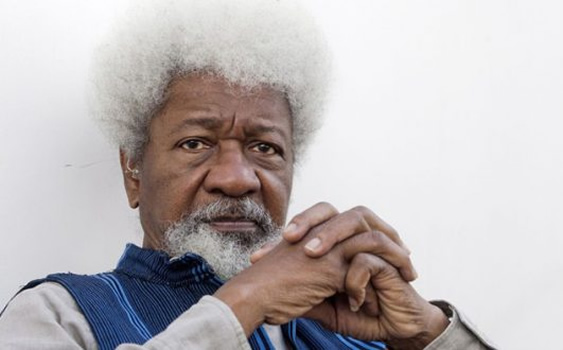Nobel Laureate Professor Wole Soyinka has called on President Bola Tinubu to immediately investigate the mysterious circumstances surrounding the deaths of several prominent Nigerians, including Dele Giwa, Bola Ige, and Kudirat Abiola, in order to bring some closure to the matter.
Speaking with selected journalists in Lagos on Saturday, the renowned author stated that Nigerians at home and abroad may possess valuable information that could shed light on these killings.
Soyinka made this appeal during the 2025 Democracy Day commemoration on 12 June, during which President Tinubu addressed a joint session of the National Assembly and awarded national honours to several heroes of the pro-democracy struggle.
While Soyinka commended the national honours, he criticised the omission of key individuals from the list. Nonetheless, he acknowledged that the recipients represented the broader group of those who participated in the fight for democracy.
He disclosed that he would dedicate his own honour to the memory of the late Dr Beko Ransom-Kuti, whom he described as a fearless human rights advocate, proponent of good governance, and staunch defender of democracy. Ransom-Kuti had faced repeated detention and imprisonment under the military regime.
Soyinka warned against trivialising the significance of the June 12 struggle, highlighting the numerous lives lost and the many who were tortured or imprisoned by the military junta.
His appeal came shortly after the presidency denied awarding national honours to activist Aisha Yesufu and 35 others. The denial followed public confusion after names were circulated suggesting her inclusion.
On June 13, President Tinubu had named 66 individuals as national honourees during a joint session of the National Assembly in Abuja, as part of the Democracy Day celebrations. Among those recognised posthumously were former Chief of Staff Shehu Musa Yar’Adua, former NEC Chairman Professor Humphrey Nwosu, and Kudirat Abiola, wife of the late MKO Abiola and a martyr of the June 12 struggle.
President Tinubu also granted a posthumous state pardon to renowned environmental activist Ken Saro-Wiwa and the other eight members of the Ogoni Nine, acknowledging their roles in Nigeria’s democratic journey—marking the first such recognition by a Nigerian president.
He stated, “I also confer posthumous national honours on Ken Saro-Wiwa (CON), the leader of the Ogoni Nine, and his fellow campaigners.” He added that he would exercise his powers of prerogative of mercy to grant them full pardons, with more names to be announced in consultation with the National Council of State.
Ken Saro-Wiwa received the national honour of Commander of the Order of the Niger (CON), while the other eight activists—Saturday Dobee, Nordu Eawo, Daniel Gbooko, Paul Levera, Felix Nuate, Baribor Bera, Barinem Kiobel, and John Kpuine—were awarded the Officer of the Order of the Niger (OON).
These activists were all executed in 1995 after a controversial military tribunal, which international human rights organisations widely condemned as politically motivated and lacking due process. Their campaign, under the Movement for the Survival of the Ogoni People (MOSOP), fought against environmental degradation in the Niger Delta caused by oil exploration—a cause that continues to resonate in the region.

